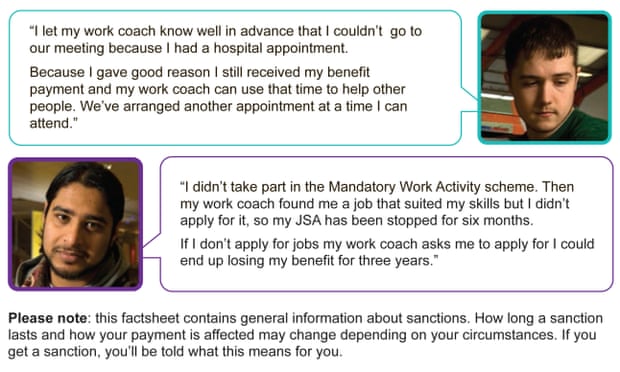Dear Mr Duncan Smith,
We are fellow Catholics and people who were brought up in the
Catholic faith. We are writing to express our concern at the impact on
our communities of your welfare reform policies. We understand that your
Catholic faith is important to you, and your approach is driven by a
desire to improve the quality of individual lives. However, we believe
that they are in fact doing the reverse. We would urge you to rethink
and to abandon further cuts which are likely to cause more damage.
Of particular concern are benefit sanctions. We were shocked to learn that your Department recognises sanctions can lead to
a deterioration in the health of a claimant.
Yet sanctions continued to be imposed. This, as a punishment for what
may be a clerical or timekeeping error, seems excessive. We would not
expect prisoners in our jails to be punished in this way, and would be
grateful if you would consider whether it is an appropriate way to treat
people who are unemployed, sick, or disabled.
We are also very concerned at the way the Work Capability Assessment
is currently managed and the change from Disability Living Allowance to
Personal Independence Payments. Both these
systems are causing great harm to sick and disabled people as are the enormous
delays in administering disability and sickness benefits.
To become seriously ill or disabled is bad enough. To then have to wait
months for help whilst unpaid bills mount up, perhaps fearing eviction
or needing to use a foodbank, is distressing and damaging. The recent
suggestion to
reduce Employment Support Allowance
– currently funded at a level that recognises the additional costs of
illness or disability – to the rate of Jobseeker's Allowance will cause
further hardship
We appreciate that you believe the benefits cap encourages people to
take control of their lives and find work. However the evidence suggests
that it is in fact
driving families into poverty and homelessness.The
main reason families exceed the benefit cap is that they require high
levels of Housing Benefit in order to pay excessive rents. As a result,
thousands of people have been forced to leave their homes, which is
disruptive to families and damaging to local communities.
We know you place great faith in Universal Credit to restore fairness
to the system, but would ask you to reconsider many aspects of it,
including the halving of the disabled child’s allowance.
Disabled people, and families with disabled children, are already more
likely to be living in poverty – it does not seem fair that they should
lose more.
We are aware of your wish to promote personal responsibility and
self-reliance, and we too believe these qualities are to be encouraged.
However, we feel that for large numbers of people, policies aimed at
promoting these qualities are having the opposite effect, pushing them
further into poverty, and worse.
We would ask you to consider these words from
Quadragesimo Anno, the Papal Encyclical written in 1931, as the world dealt with the Great Recession:
To each, therefore, must be given his own share of goods; and the
distribution of created goods, which, as every discerning person knows,
is labouring today under the gravest evils due to the huge disparity
between the few exceedingly rich and the unnumbered propertyless, must
be effectively called back to and brought into conformity with the norms
of the common good, that is, social justice. (para 57/58)
The Encyclical went on to stress that this entitlement to a share of
the wealth of the community was not dependent on work. In other words,
when people are unable to work through ill health or disability, or
unable to find a job, it is our duty to make sure that they receive the
basic requirements of a dignified life; adequate food, shelter, warmth
and security.
We believe that a supportive welfare state is an expression of
Christian justice and compassion. When this support is removed, we may
think we are saving money, but the consequential problems, like poorer
mental and physical health, and educational underachievement, all bear a
human and financial cost, and will have to be paid for in some way.
We accept that your reforms have been undertaken in accordance with
your conscience, but we would ask you to accept in return that our
concerns are genuine, and our experiences of increasing social distress
are real. Our consciences, informed by our faith and experience in our
communities, leave us with no alternative but to speak out when we see
some of the most disadvantaged people in society being harmed.
We would like to enter into a dialogue with you, to explore how as
citizens we can best support and enable our less fortunate neighbours,
whilst treating them with dignity and respect. We have constructive
proposals on how to make our welfare system work better, and in a way
that is more compatible with Catholic and Christian values. We would not
wish to find ourselves reliant on charity to survive, and are saddened
that so many of our neighbours have become so in recent years. As Saint
Augustine said, ‘Charity is no substitute for justice withheld.’
We would like to thank you for taking the time to read this letter.
We remain your sisters and brothers in Christ,
Read more...















